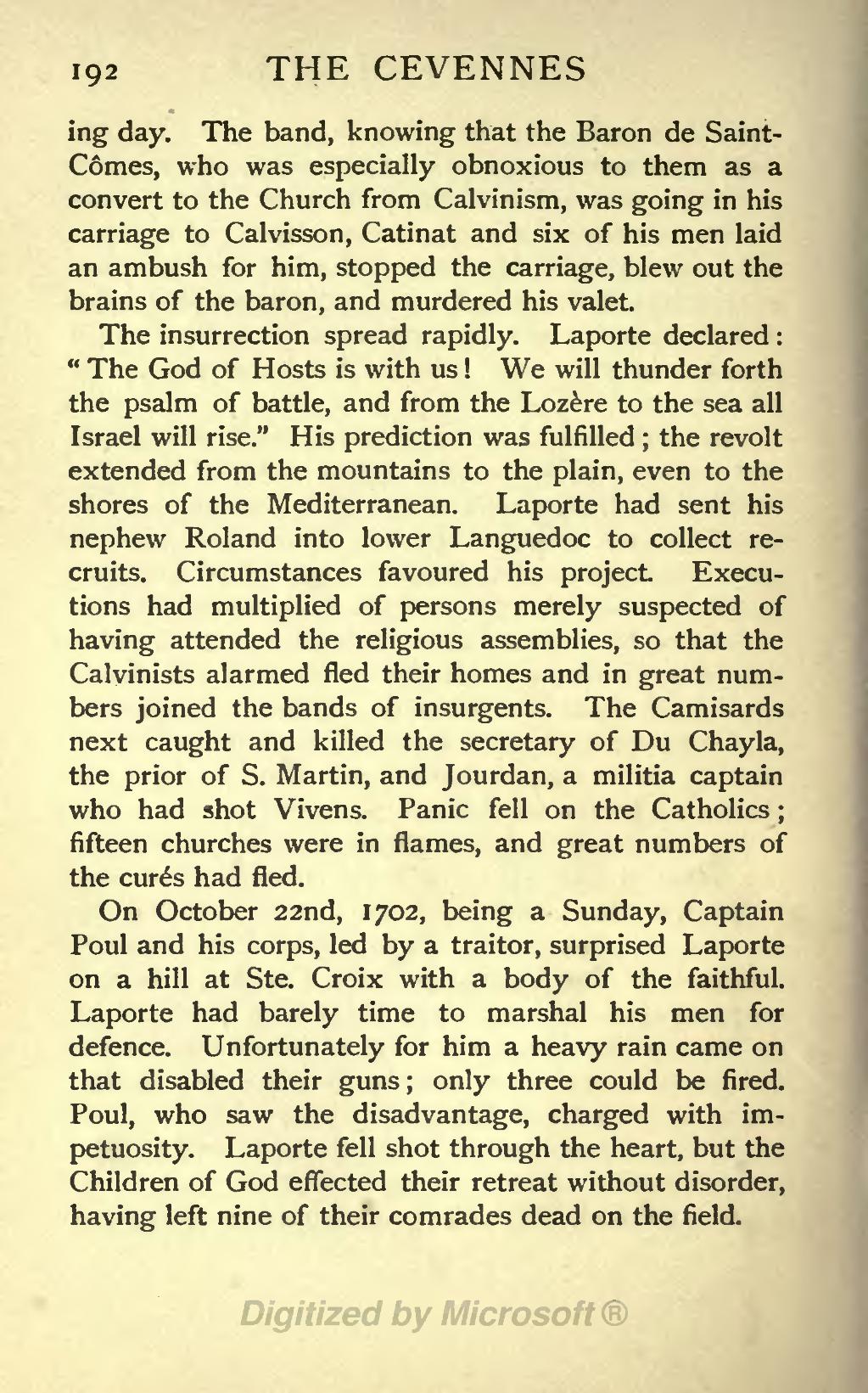ing day. The band, knowing that the Baron de Saint-Cômes, who was especially obnoxious to them as a convert to the Church from Calvinism, was going in his carriage to Calvisson, Catinat and six of his men laid an ambush for him, stopped the carriage, blew out the brains of the baron, and murdered his valet.
The insurrection spread rapidly. Laporte declared: "The God of Hosts is with us! We will thunder forth the psalm of battle, and from the Lozère to the sea all Israel will rise." His prediction was fulfilled; the revolt extended from the mountains to the plain, even to the shores of the Mediterranean. Laporte had sent his nephew Roland into lower Languedoc to collect recruits. Circumstances favoured his project Executions had multiplied of persons merely suspected of having attended the religious assemblies, so that the Calvinists alarmed fled their homes and in great numbers joined the bands of insurgents. The Camisards next caught and killed the secretary of Du Chayla, the prior of S. Martin, and Jourdan, a militia captain who had shot Vivens. Panic fell on the Catholics; fifteen churches were in flames, and great numbers of the curés had fled.
On October 22nd, 1702, being a Sunday, Captain Poul and his corps, led by a traitor, surprised Laporte on a hill at Ste. Croix with a body of the faithful. Laporte had barely time to marshal his men for defence. Unfortunately for him a heavy rain came on that disabled their guns; only three could be fired. Poul, who saw the disadvantage, charged with impetuosity. Laporte fell shot through the heart, but the Children of God effected their retreat without disorder, having left nine of their comrades dead on the field.
